The Arbery Case: Arbitrary Justice and Black Vengeance
Gregory Hood, American Renaissance, February 25, 2022
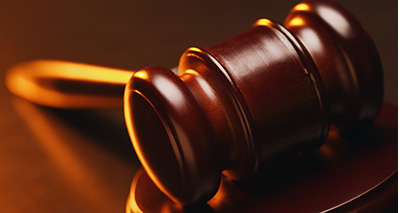
Credit Image: © Kelly Redinger/Design Pics via ZUMA Wire
The greatest source of fear is the unknown. Few things are more terrifying than an arbitrary justice system. That’s what we face in America today.
A jury convicted Travis McMichael, Gregory McMichael, and William “Roddy” Bryan of federal hate crimes against the late Ahmaud Arbery. This may seem redundant because they were already facing life without parole after a state court’s judgment, but the federal government pressed on anyway, initially offering a plea deal that the Arbery family successfully lobbied against.
The family thought the deal was too lenient because it allowed the defendants to go to federal prison. Wanda Cooper-Jones, Arbery’s mother, said federal prosecutors “ignored my cry.” The Arbery family apparently thinks federal prison is better than state prison. They might be wrong about this, but it doesn’t matter. The family’s vengefulness got results. It’s rare for prosecutors and a victim’s family to disagree going into a trial.
The tenacity, courage and determination of Wanda Cooper Jones, the mother of Ahmaud Arbery must be recognized and lauded. She was determined that this prosecution would move forward. https://t.co/1dovMgh3iF
— Sherrilyn Ifill (@Sifill_LDF) February 22, 2022
The late Mr. Arbery’s mother has also sued former Glynn County District Attorney Jackie Johnson and many other law enforcement officials last year. Miss Johnson is already facing charges of violation of office and obstruction. She lost reelection because of the Arbery case.
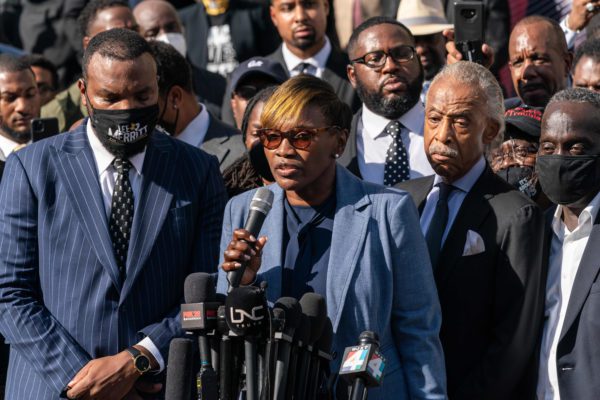
November 19, 2021, Brunswick, GA: Wanda Cooper-Jones, mother of Ahmaud Arbery, center, addresses more than 500 black pastors and supporters gathered outside the Glynn County Courthouse. (Credit Image: © Richard Ellis / ZUMA Press Wire)
Travis McMichael had worked in her office, and she allegedly advised an outside prosecutor not to bring charges before she recused herself. That outside prosecutor, District Attorney George Barnhill, also had to recuse himself because his son worked with one of the defendant’s sons. Before he did that, he wrote a letter/report to the police that said “Arbery initiated the fight” and so Travis McMichael “was allowed the use of deadly force to protect himself.” While writing the report may have been a mistake, it was a reasonable analysis backed with strong supporting evidence.
It’s hardly surprising that someone who once worked in the prosecutor’s office knew staffers. Yet even if we concede impropriety, it’s hard to believe prosecutors weren’t persuaded by the video that no crime was committed. William Bryan, who took the video, gave it to police no doubt because he thought it exonerated his two neighbors. A lawyer who consulted with the defendants leaked the video because he thought it would tamp down on wild rumors.
Mr. Bryan cooperated. For his trouble, he quickly went from losing his job and facing threats to being charged himself. His lawyer said at the time that the “only thing” that had changed were the “political winds.”
The prosecution came when “Mr. Arbery’s family and activists zeroed in on Mr. Bryan, urging authorities to charge him.” The initial investigator’s findings were tossed because his son once worked alongside one of the suspects, and the New York Times wrote about the local police department’s “troubling history.” Mr. Arbery’s lawyer said “that’s small-town America” and cited law enforcement’s “very tight-knit community” as a possible problem.
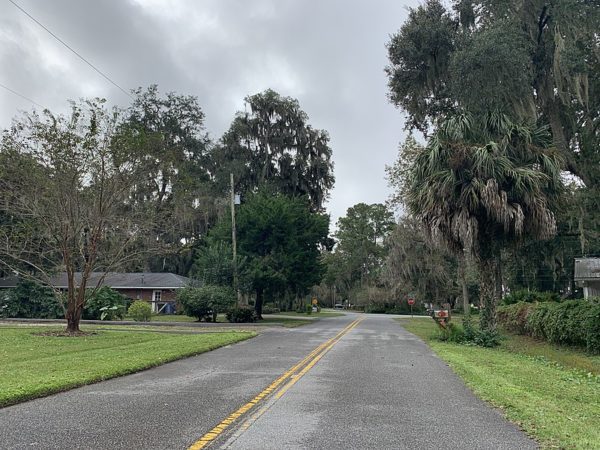
Location of Ahmaud Arbery shooting (Credit Image: LittleT889 via Wikimedia)
Mr. Bryan couldn’t have imagined a court would use the video to convict him of murder. It would have been even more unbelievable to expect the prosecutor to face charges. District Attorney Barnhill is probably nervous that he’ll be next. He’ll be lucky to escape with just the ruin of his career. These white men who trusted in the system seem bafflingly naïve.
Miss Cooper-Jones’s lawsuit names Mr. Barnhill, Miss Johnson, Mr. Bryan, the McMichaels, the police chief, and unnamed (“John Doe”) police officers. It alleges that police officers, the police chief, and two prosecutors “conspired to hide the circumstances surrounding Ahmaud’s death and to protect the men who murdered him.”
Whatever you think of that claim, there’s no arguing with the next sentences:
And none of this would have been discovered but for video footage leaked to the media, which showed the horrific and brutal murder of Ahmaud. Two days after the video was released to the public and drew national attention and outrage, law enforcement finally arrested Defendants Travis McMichael, Gregory McMichael, and William Bryan for murder.
The New York Times also credited media attention with changing the investigation, saying:
Within days, the Georgia Bureau of Investigation had taken over the case. The video was criticized by celebrities and politicians alike, including President Trump, who called the footage “very, very disturbing,” and former Vice President Joseph R. Biden Jr., the presumptive Democratic presidential nominee, who said Mr. Arbery had essentially been “lynched before our very eyes.”
The admission that this case became a major scandal because of media coverage doesn’t prove the verdicts were just. It suggests the opposite. If “lynching” refers to mob prejudice overriding an objective legal process, it was the McMichaels and Mr. Bryan who were lynched.
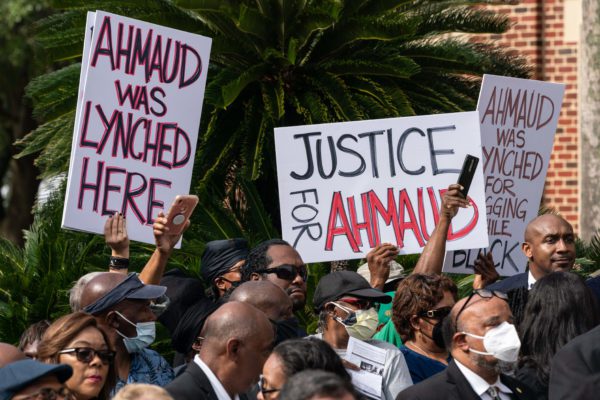
Protestors hold signs during the Wall of Prayer gathering of more than 500 black pastors and supporters outside the Glynn County Courthouse November 18, 2021 in Brunswick, Georgia. (Credit Image: © Richard Ellis / Planet Pix via ZUMA Press Wire)
The hate-crime trial was, if anything, more horrifying than the verdict in state court. That first trial was bad enough. Jared Taylor noted that “Travis McMichael does not fire until Arbery appears to run right into him and tries to take his shotgun.” While it appears to me that Travis McMichael acted in self-defense, I can at least imagine that someone might disagree. However, in the hate-crime trial, the defendants weren’t tried for what they did, but for what they said and supposedly believed.
Reuters bluntly states “Ahmaud Arbery’s family fought for a trial that made racism central to his murder.” Evidence included “racist and sometimes violent content from the defendants’ digital footprints,” notably the use of racial slurs. The defense argued that racism wasn’t core to the defendant’s actions; the defendants pursued Mr. Arbery because they suspected he was a thief. Travis McMichael’s lawyer said that “this [would] have happened to a white guy.” The defendants’ supposed support for “vigilantism,” portrayed by the prosecution as evidence of wrongdoing, actually suggests that stopping crime was their motive. Indelicate language spread over a period of years tells us very little about what Travis McMichael felt before he fired at Arbery. In the immediate aftermath, he appears heartbroken and shaken, not triumphant.
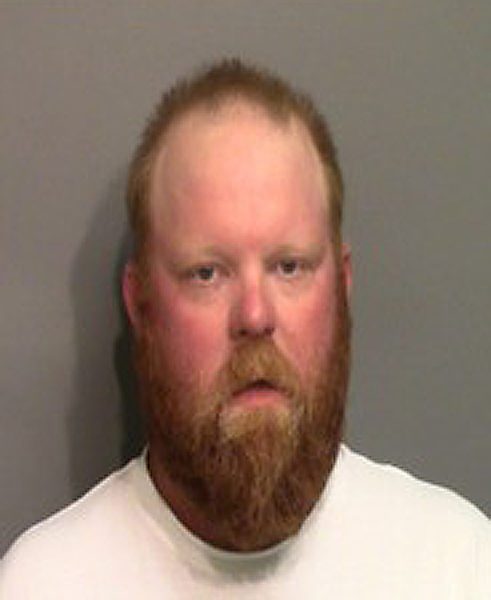
Travis McMichael (Credit Image: © Glynn County Detention Center / ZUMA Press Wire)
The “hate crime” trial became an exercise in mind-reading, one especially obscene because it had little to do with the defendants’ mindset at the time. Instead, the case focused on proving that the defendants’ had socially inappropriate views about race. At the same time, in the state trial, Mr. Arbery’s own criminal past was ruled irrelevant. “He was at a crossroads, his life stretching out before him, his troubles largely behind him,” began a hagiographic article from ABC about the trial. This purple prose tells us nothing about what happened. Instead, it makes it seem as though Mr. Arbery had little agency. Legal troubles simply “bogged him down,” deviations from a “bottomless reservoir of kindness.” The defendants get no such sympathy
According to the Republican-controlled Georgia legislature, Mr. Arbery deserves an annual holiday every February 23 to “honor one of its most distinguished citizens.” Arbery’s history of mental illness, shoplifting convictions, trespassing at a construction site and even his reputation among store owners as “the jogger” who would steal goods and run away were all not allowed in the trial. All of this seems more relevant than what the defendants thought about blacks. It is akin to black murder victim Stephen Lawrence’s mother being made a Baroness with a seat in the House of Lords in the United Kingdom. Mr. Arbery’s value is not in anything he accomplished, but as an insult to whites.
The modern Black Lives Matter movement arguably began with the Trayvon Martin/George Zimmerman trial in 2012. A jury acquitted Mr. Zimmerman. However, even in that case, the Department of Justice extensively investigated George Zimmerman’s racial views to see if he violated Trayvon Martin’s “civil rights.” Though it found nothing, a similar investigation could end differently today, as what is considered “racist” has transformed dramatically in between the Obama Administration and 2015–2016 Great Awokening.
Social pressures have also changed. Mr. Zimmerman received a fair trial because the jury was sequestered. In contrast, in the Arbery trial, the New Black Panther Party was allowed to parade outside the courthouse, Wanda Cooper-Jones’s lawyer arguably taught people how to manipulate jury selection, and black activists including Al Sharpton and Jesse Jackson sat in the courtroom. At least one potential juror in the Arbery case expressed fear about serving on the jury. Let’s not forget NBC followed a jury van in the Kyle Rittenhouse trial, presumably to dox jurors.
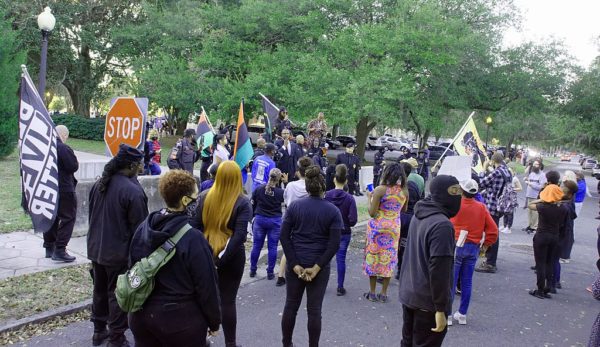
The New Black Panther Party protesting outside the courthouse on November 22, 2021 (Credit Image: Jud McCranie via Wikimedia)
In March, Jared Taylor said that it was “impossible” that Derek Chauvin would get a “fair shake.” “The media already found him guilty, and the country erupted in violence,” he said. “All the jurors know that if they vote to acquit, there will be more rioting. Probably worse than before.” A court just convicted Derek Chauvin’s junior partners, Tou Thao, J. Alexander Kueng, and Thomas Lane, of denying George Floyd’s civil rights. Two of the three officers are non-white, and Tou Thao wasn’t even dealing with Floyd, but merely keeping the crowd back. This didn’t matter. A state trial for allegedly aiding and abetting murder and manslaughter is still to come. Based on this and the Arbery precedent, we see that if you are even marginally involved in a racial controversy, you could face strict legal penalties, even charges of murder.
In the current environment, a defendant’s social-media history can be used as evidence in a hate-crime trial. In James Fields’s trial from the 2017 Unite The Right rally, his social media comments and even discussions with his mother arguably led to his conviction. The situation itself was chaotic, but his racial views were clear. The Independent summarized his character as a “hate filled man.” It’s quite a contrast to ABC’s description of Arbery as a man “at a crossroads,” a charitable way of describing his dodgy past.
Hate-crime laws arguably require these exercises in mindreading. They shift the focus away from the alleged crime toward the mindset of the defendant. At the same time, the often-criminal history of black alleged victims is simply ignored. Opposition to anti-white racial discrimination and Black Lives Matter or support for colorblind laws or Republican candidates can be considered “racist.” Given the media’s power to create a narratives, no white person can count on a fair trial. Any violation of America’s ever shifting racial orthodoxy could conceivably be the difference between life imprisonment and freedom. Kyle Rittenhouse faced a situation very similar to Travis McMichael, but he may have been able to escape convictions (and enjoy a career as a conservative icon) simply because his attackers were not black.
What is considered “hateful” also seems to work just one way. Waukesha Massacre suspect Darrell Brooks rapped about his scorn for whites and cut a track sampling Malcolm X before bragging about his AK-47, cursing out President Trump, and threatened to make a “shooting victim” of police. Of course, streets are named after Malcolm X in the United States. Mr. Brooks’s self-described “revolutionary” views are banal and mainstream. Not surprisingly, Mr. Brooks is not facing hate-crime charges. His case has no political importance to our rulers.
Part of the reason why is because there is no white pressure group. The video of the Waukesha Massacre is public and horrifying. Mr. Brooks has a lengthy, unsavory criminal record and is hardly a sympathetic defendant. Nonetheless, while there was sadness over the attack, there is little anger, at least any that is politically useful.
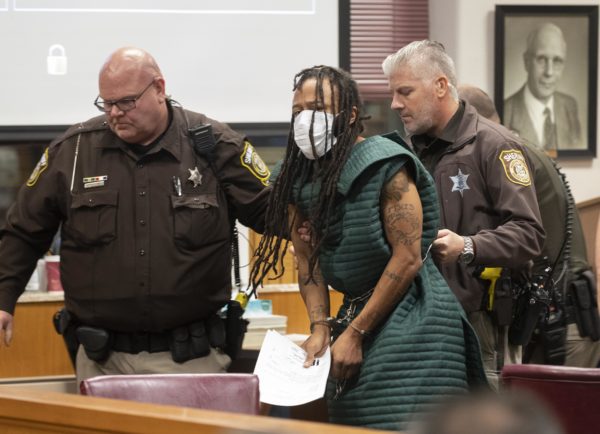
November 23, 2021, Waukesha, Wisconsin: Defendant Darrell Brooks, arrived in court and sat next to his Assistant State Public Defender lawyer Anna Kees. Charged with intentional homicide after driving his maroon SUV through a crowded street commemorating the holiday season, resulting in the deaths of six people ages 8 to 81 and injuring dozens more, on Sunday, November 21, 2021. (Credit Image: © Mark Hoffman – POOL via ZUMA Press Wire)
While blacks hound white defendants, many whites showily forgive blacks who murder their family members. A classic case was Amy Biehl’s parents not only forgiving their daughter’s killers but even employing one of them. While national media celebrated the Arbery family’s vengeance, The Guardian covered the case of white stabbing victim Adam Towler, who told his black attacker that he wasn’t even “upset or angry” with him, and that he wasn’t owed an apology.
A white victim who blasted black crime would face hostile media if not charges of his own, at least in some countries. White college student Mollie Tibbetts was a victim of brainwashing and a killer. Nonetheless, her father turned his daughter’s eulogy into a tribute to Iowa’s Hispanics, who have “better food” than whites. These cringing displays reflect something empty and lifeless, as if these family members and victims put the opinions of journalists above all other considerations.
This tendency shouldn’t be overstated. For example, Cannon Hinnant was a white five-year old allegedly murdered by Darius Sessoms in cold blood. His mother wants the death penalty for her son’s killer. However, she’s also taken care to say that it is not a race issue. Forbes dismissed the case as a “conservative controversy about race.” Even in a case like that of young Cannon, a grieving mother bringing race into the case might meet with more outrage than the actual murder.
Whites may think they don’t need to worry about this. Black crime has increased since the Black Lives Matter movement took off. Blacks themselves have paid the greatest cost but one it seems they are willing to pay. Black lives matter only when they are taken by whites. Otherwise, “the community” seems relatively indifferent.
What blacks gain is a legal advantage over every white person. Any racial confrontation could spell doom for whites. Anything white suspects say, write, or read could be used against them. The rules do not apply to blacks. What’s more, the key factor that decides whether a white-on-black case becomes a national controversy or not seems to be whether the media finds out. We are trapped under an arbitrary system that has more to do with sensationalism and mob incitement than any objective standard of justice.
The answer is simple and yet difficult. If whites don’t want to live under a legal code more arbitrary and Kafkaesque than anything King George III offered, we need to organize collectively. It would be best to eliminate hate crimes entirely and so remove this mind-reading element from the law. Failing that, black hatred against whites expressed in speech, writing, and what we’ll charitably call music should be considered evidence for hate-crime charges. Faking hate crimes should also be considered a hate crime in itself. It’s a libel against whites designed to promote racial grievance. Whites must also act differently. We should regard a crime against one as a crime against all, as blacks do.
Yet all of that brings us back to the same starting point. We need white identity. The legal system considers whites a special class. We are discriminated against in law. We are subject to double standards. According to those with power, we are a people, whether we want to be or not. In Sam Francis’s formulation, we exist objectively as a people recognized by the state, but not subjectively because we don’t recognize ourselves.
Until we do, and until we organize for our interests, every white person in a racial encounter faces a Sword of Damocles. Any viral story could spell doom, regardless of the facts of the case. While some white Republicans have declared Ahmaud Arbery a hero, few will express sympathy for white children murdered in the vilest ways, even though such crimes are arguably encouraged by our culture’s anti-white bias.
I don’t pretend that getting whites to take their own side will be easy. Until it happens, don’t be trapped by your naiveté and good will under this hostile system. Don’t trust the system to look after your rights and don’t expect evidence — even a video — to save you. Understand that if you are white, you have less privilege than your non-white fellow citizens. The System may still railroad you, but you don’t have to make it easy for them. I’m sure Mr. Bryan wishes he knew that before he gave his video to the police.















